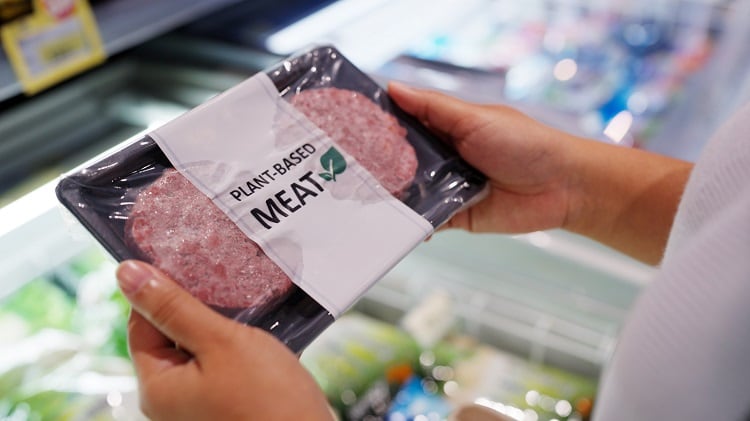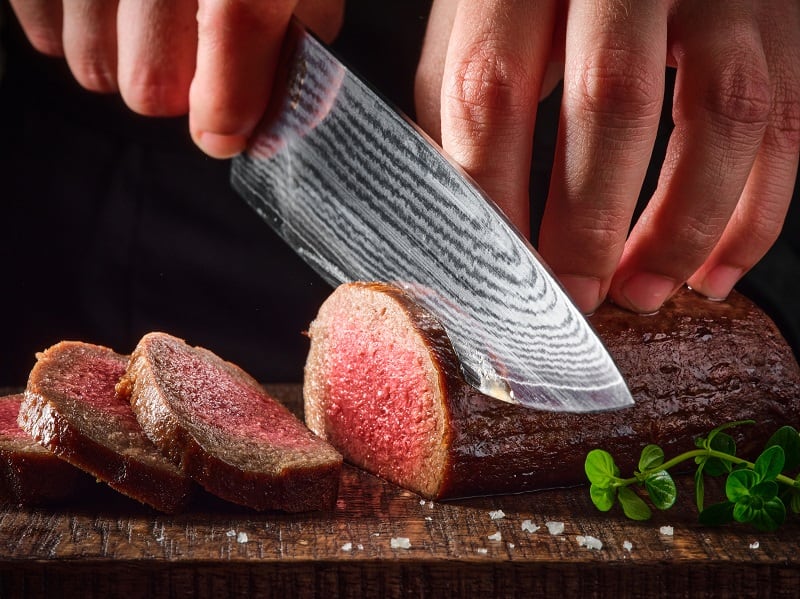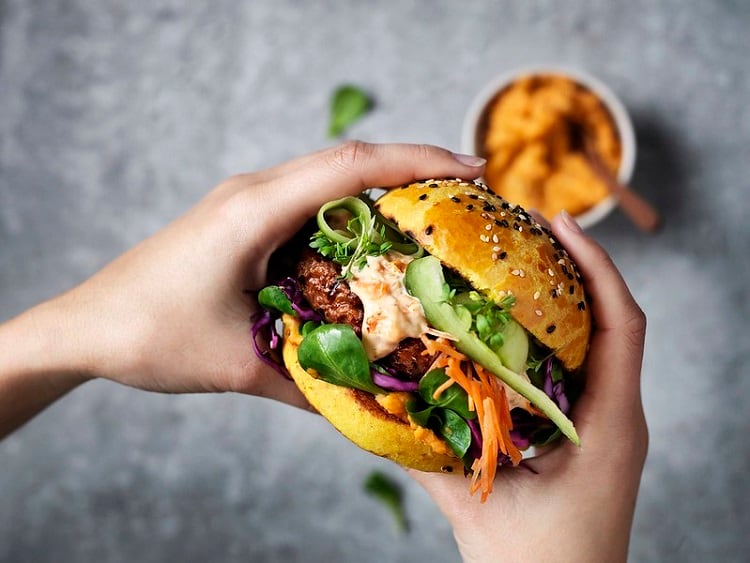In many major markets, growth in the plant-based meat category is faltering.
According to the Good Food Institute, plant-based meat sales declines are being driven by slightly fewer consumers purchasing in the category amidst an inflationary climate. These factors can spell bad news for plant-based meat makers, a growing number of which are reconsidering their place on shelf.
But is the sector experiencing a slowdown, or a ‘shakedown’, to the same extent in different markets such as the UK, Israel, and Iceland? FoodNavigator investigates.
It’s not a ‘slowdown’ in the UK, it’s a ‘shakedown’
That the UK plant-based market is experiencing a slowdown is ‘unquestionable’, according to Matthew McAuliffe, group innovation and product development director at The Compleat Food Group – owner of plant-based meat brand Squeaky Bean.
Following ‘incredible growth’ (fellow William Reed publication The Grocer estimates the meat-free category was worth £607.3m [€704m] in 2021), the market has since declined both in value and volume, McAuliffe told FoodNavigator’s Protein Vision broadcast event in June. “It really has slowed down.”
But at Squeaky Bean, ‘slowdown’ is not the term employed. Rather, the team describes it as a ‘shakedown’, which McAuliffe suggested is a symptom of overcrowding within the category.
“There have been far too many brands. At peak times, you could get your hands on something like 49 burgers in the marketplace, which is about 45 too many. So the shakedown has started. The brands are being [analysed], and obviously it’s sad news to hear of any brands falling by the wayside.”
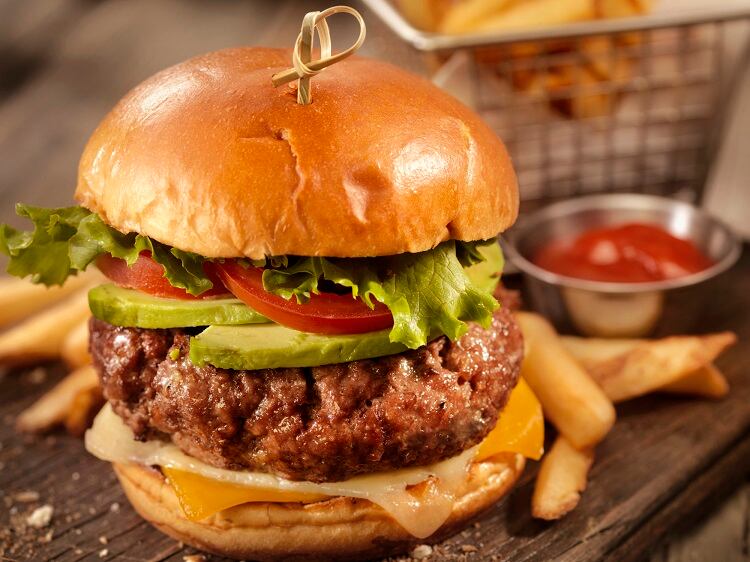
A recent example includes US-based plant-based frozen meal brand Tattooed Chief, which recently filed for bankruptcy and plans to auction off its assets.
Consolidation is on the up, with Livekindly Collective continuing to grow its plant-based portfolio with the acquisition of Alpha Foods. And in the UK, Meatless Farm was recently sold by administrators to Vegan Fried Chick*n, which has already got the Meatless Farm brand back on shelf.
UK-based Plant & Bean – not a brand, but a manufacturer of meat-free products for the likes of Quorn, Princes, and Wicked Kitchen – also filed for administration. The company’s manufacturing site has been sold to Heather Mills’ businesses.
Israeli start-up weighs in: ‘Changes and trends are part of commercial life’
In Israel, another country with a developed alternative protein scene, any potential slowdown in the plant-based market should not come as a surprise, believes Dr Yishai Mishor, founder and CEO of alt meat supplier Meat.The End.
Just as with any new category of food, a slowdown is expected, he told delegates at Protein Vision. “You will always see changes, and trends are a part of commercial life.”
But Dr Mishor does not expect any form of downward trend to continue in the long term. For reasons linked to environmental sustainability and affordability, he believes in a largely plant-based future. “Even if [the category] is experiencing a slowdown in 2023 or 2023, 10 years from now it will be a completely different story.”
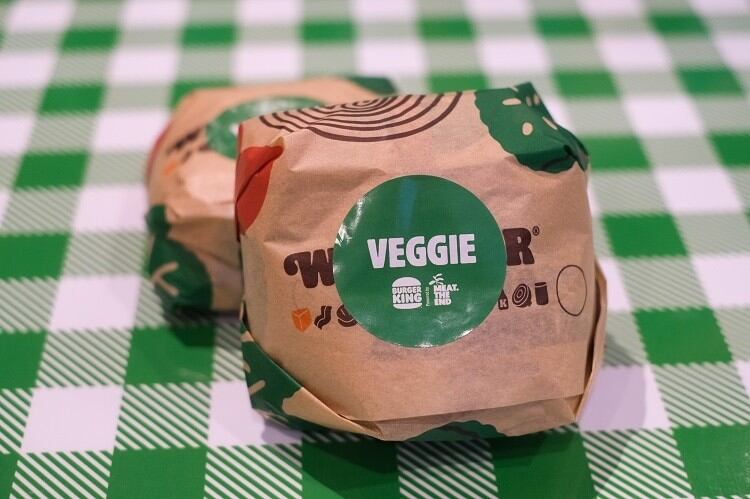
As it so happens, Meat.The End’s commercial experience to date suggests Israeli appetite for plant-based meat alternatives is growing. Last year, the company announced its first commercial partnership to supply Veggie Whoppers and Veggie Kinds (plant-based nuggets) to Burger King restaurants in Israel.
“Sales of meat alternatives have tripled with our products,” Dr Mishor reported. The founder puts this down to the sensory impact of Meat.The End’s texturization processes and the fact its products are sold at price parity with their conventional meat counterparts.
“If everyone were to [focus] ono those two parameters combined – sensory and price – we can see immediate improvements in sales of this category.”
It’s not a plant-based slowdown, but an inflation-related slowdown in Iceland
In Iceland, plant-based seafood start-up Loki is not aware of a slowdown in the category, co-founder and CEO Christopher McClure explained. “We’ve certainly seen a slowdown in meat, fish, chicken, and dairy [consumption], and we are starting to see a ‘flippening’ of pricing between more sustainable options.”
Seafood is big business in Iceland. The country boasts the highest per capita seafood consumption in the world and its market is mature. “Up until around 20 years ago, it made up half of the country’s total GDP. 150 years it was all its GDP. Now it’s about 30% of our GDP, and about half of that is white fish and cod,” said the Loki CEO.
But with climate change pushing up temperatures in local waters, cod will struggle to survive – which would significantly impact Iceland’s GDP, we were told. Loki’s first product is fittingly a plant-based alternative to whitefish, such as cod.
Despite Iceland’s strong links to commercial fishing, McClure told us Iceland boasts a high consumer base of plant-based eaters. According to The Vegan Society, more than 6.5% of people in Iceland identify as vegan (compared to around 1.21% in Great Britain). Iceland’s capital Reykjavik is also home to the self-proclaimed largest vegan store in the world.

At the same time, Iceland appears to be more exposed to inflation than other countries in its vicinity. Inflation peaked in early 2023 at around 10%, according to the Organisation for Economic Cooperation and Development (OECD), making the country particularly price sensitive.
For McClure, any slowdown observed in Iceland more likely to be linked to economics rather than the plant-based category itself. “I don’t think we’ve experienced too much of a slowdown that is specific to plant-based, we’ve just seen a slowdown that’s specific to inflationary conditions.”
Missed Protein Vision 2023? Don’t worry, all four sessions profiling cutting edge innovation in the alternative meat and dairy space are still available to view. Register here to watch on demand.


